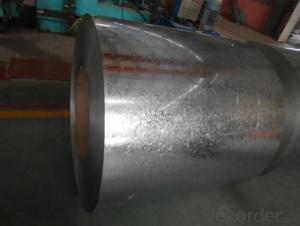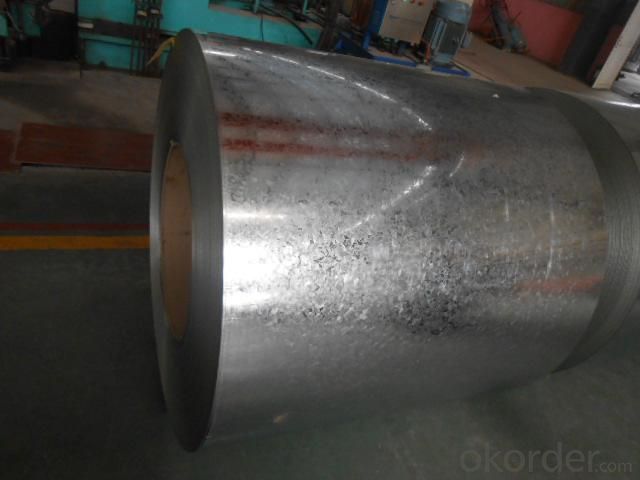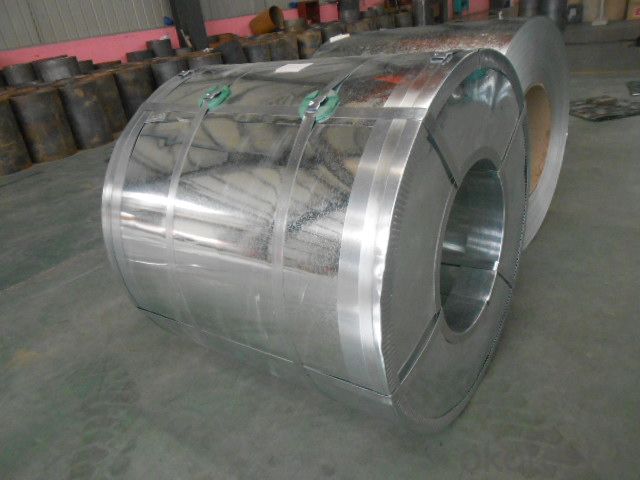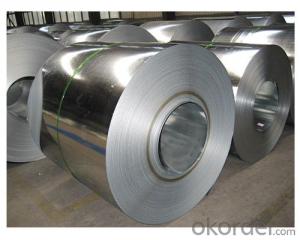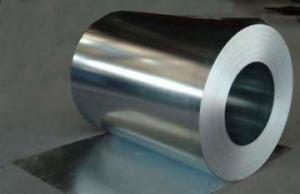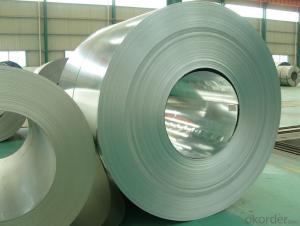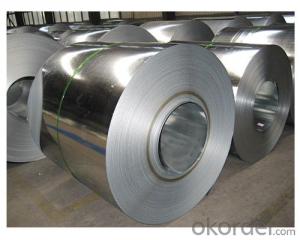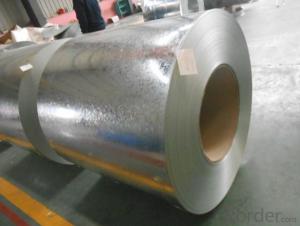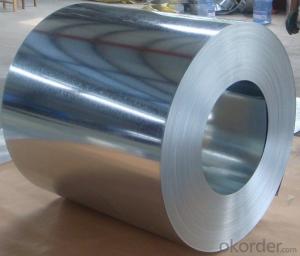Galvanized Steel Sheet Coils with Prime Quality Best Seller
- Loading Port:
- Shanghai
- Payment Terms:
- TT OR LC
- Min Order Qty:
- 100 m.t.
- Supply Capability:
- 10000 m.t./month
OKorder Service Pledge
OKorder Financial Service
You Might Also Like
1.Structure of Hot-Dip Galvanized Steel Sheet Description:
Hot-dip galvanized steel coils are available with a pure zinc coating through the hot-dip galvanizing process. It offers the economy, strength and formability of steel combined with the corrosion resistance of zinc. The hot-dip process is the process by which steel gets coated in layers of zinc to protect against rust.
2.Main Features of the Hot-Dip Galvanized Steel Sheet:
• Excellent process capability
• Smooth and flat surface
• Workability, durability
3. Hot-Dip Galvanized Steel Sheet Images
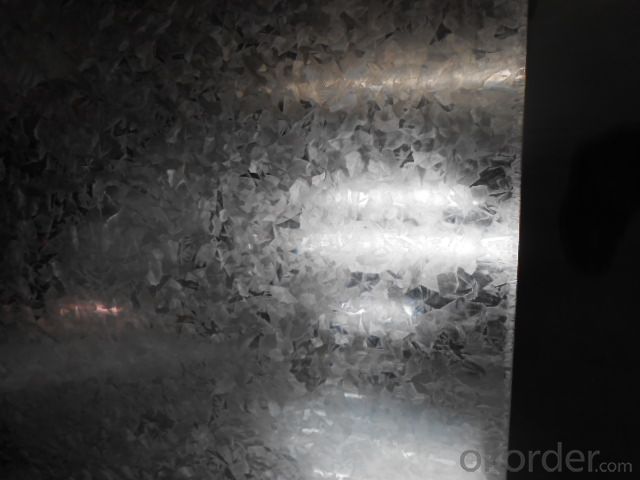
4.Hot-Dip Galvanized Steel Sheet Specification
Standard: ASTM, JIS,EN
Grade: CS, DX51D+Z,SGCC, SS 230~550,S220GD+Z~S550GD+Z, SGC340~SGC570
Thickness: 0.1mm~5mm
Width: max 2000mm
Surface structure: zero spangle, regular spangle or minimum spangle Surface treatment: Chromate treatment, Oiled/dry, skinpassed/non-skinpassed Packing: Standard seaworthy export package Coil weight:3-12 MT
Coil ID:508/610mm
5.FAQ of Hot-Dip Galvanized Steel Sheet
We have organized several common questions for our clients,may help you sincerely:
1.How about your company?
A world class manufacturer & supplier of castings forging in carbon steel and alloy steel,is one of the large-scale professional investment casting production bases in China,consisting of both casting foundry forging and machining factory. Annually more than 8000 tons Precision casting and forging parts are exported to markets in Europe,America and Japan. OEM casting and forging service available according to customer’s requirements.
2.How to guarantee the quality of the products?
We have established the international advanced quality management system,every link from raw material to final product we have strict quality test;We resolutely put an end to unqualified products flowing into the market. At the same time, we will provide necessary follow-up service assurance.
- Q: A friends of mine says he has balls of steel and i told him i would melt em off with lava. He said it wouldnt work. i disagree
- some lava is hot enough to melt steel. Mostly, though, the metal would react with the lava and get eaten up that way rather than directly melting. Most lava can contain an awful lot of iron and other metals without any difficulty and are rarely saturated with those metals.
- Q: Hi,Well, I live near almost across the street from a forest, and my neighborhood is full of raccoons!!! Recently, I just purchased a bunny and have kept it at my cousin's house for the time being. He has a steel cage, and is about 6 months old. I am considering bringing him home and leaving him in the back yard with his steel cage. I am just afraid that raccoons can bite through the steel and get to him. So the question is... Is is possible for raccoons to bite through steel? Btw,Please don't answer hate comments about me being a bad rabbit owner. I simply want to know if raccoons can bite through steel. If it doesn't work out, the rabbit will stay at my cousins house until further notice. But please, I did not waste 5 points for unneeded answers. Thanksss!
- Well the raccoons can't bite through steel unless it is very thin steel, like aluminum foil thickness. But they have long arms and can reach into the cage so that would be my worry. They are also very clever so I don't know if it is safe for the bunny. That would depend upon the size of the cage and how hungry the raccoons are. The raccoons might be tempted to try to steal the bunny's food so that is a concern. Check with a pet shop owner or forester or someone like that who has knowledge about raccoons in the area.
- Q: I'm doing a project on stainless steel dining utensils and its a little more difficult than i thought it would be. There are no sites on the web that tells the creator or when it was first used. There's no sites that that i can see of that talk about the history of stainless steel dining utensils, only dining utensils in general. Please help, i can't change my project now ):
- The development of 18/10 stainless steel was the brainchild of Harry Brearley who, in 1913, was working on a project to prevent rifle barrels from corroding so much during use. His analysis of the rifle barrels involved having to dissolve them in acid but, by chance, he noticed that steel which had a high chromium content did not dissolve in the acid. He experimented with varying proportions of chromium and finally produced a stainless steel with 12.8% chromium. He moved to Thos Firth Sons in 1914 and commercial production of stainless steel cutlery began. Refinements were necessary because early versions of stainless steel knives were harder to produce and polish, and they would not cut as well as the existing knives.
- Q: How are steel coils used in the production of scaffolding?
- Steel coils are used in the production of scaffolding as they are typically cut and shaped into various components such as tubes, frames, and brackets. These coils provide the necessary strength and durability required for scaffolding structures, ensuring the safety and stability of workers who use them.
- Q: Went to top gun range in Houston, Tx. Guy there said no steel bullets..Anyone know why? Think i can shoot them anywhere else? Perhaps an outdoor gun range? The are monarch FMJ 9mm steel rounds..Thanks!
- Indoor ranges and ranges that provide steel targets don't like them because of the additional wear and tear on their equipment. Some outdoor ranges don't allow them because they can strike sparks when they hit rocks and cause a fire. Others don't care. Best to call ahead or check the range's web site, if any, to see what they allow and don't allow.
- Q: I was curious to what type of steel I should get if I wanted something that kept its edge longer than 154cm but is still just as stainless. I don't know much about knife steels inform me please?
- If you want a good quality knife, stay away from Stainless, I would suggest one that is a mix of high and low carbon steel, high carbon holds the edge, but is brittle, low carbon is more malleable, which prevents from breaking when used.
- Q: i want to know if i should buy a set of acrylic tapers or steel. they r close in cost so it's not a money factor i want to know which work better and if there is a downside to either. thanks!
- Steel is better. Acrylic is porous so isn't as suitable for piercing jewellery as steel. Steel can also slide through easier for some people, acrylic isn't quite as smooth. For tapers it doesn't make a huge deal of difference as they're only passing through your ear briefly, not being worn as jewellery, but if they're close in cost anyway then go for the steel. And the plugs you insert after putting the taper through should always be steel, titanium or glass until your stretch has healed.
- Q: What are the common storage defects in steel coils?
- Steel coils can suffer from various storage defects, including staining or discoloration, rust or corrosion, coil deformation, surface damage, edge damage, coil slippage, contamination, and coil nesting. These defects can negatively impact the appearance, quality, usability, and safety of the steel. To prevent these defects, it is essential to implement proper handling, storage, and protection measures. This involves storing the steel coils in a dry and well-ventilated area, away from moisture and chemicals. Additionally, appropriate stacking and support structures should be used to prevent deformation and bending. To avoid mishandling and transport damage, it is important to stack and handle the coils correctly. Adequate protection against impacts and contaminants should be provided to prevent surface scratches, dents, and abrasions, as well as edge damage. It is crucial to ensure that the edges of the coils are properly protected and secured during storage to maintain their usability and safety. Furthermore, to prevent coil slippage and potential harm to personnel or equipment, the steel coils should be securely stored and stacked. To avoid contamination, the coils should be kept away from substances like dirt, oil, grease, and chemicals. Regular inspections and maintenance should be conducted to identify and address any potential defects or issues promptly. Overall, by implementing these proper handling, storage, and protection measures, the occurrence of these common storage defects in steel coils can be minimized, ensuring the appearance, quality, usability, and safety of the steel.
- Q: How are steel coils inspected for straightness using laser alignment?
- Steel coils are inspected for straightness using laser alignment through a precise and automated process. Laser alignment technology offers a non-contact method to measure the straightness of steel coils with high accuracy and efficiency. Firstly, the steel coil is placed on a conveyor system that moves it through the inspection area. As the coil passes through, a laser alignment system is set up to emit a laser beam across the width of the coil. This laser beam acts as a reference line for the straightness measurement. The laser alignment system consists of a laser emitter and a receiver unit. The emitter projects a laser beam that is perfectly straight and parallel to the desired alignment. The receiver unit, placed on the opposite side of the coil, captures the laser beam and analyzes its position. As the coil moves through the inspection area, the receiver unit determines the deviation of the laser beam from the desired straight line. This deviation is calculated by analyzing the position of the laser beam at multiple points along the coil's width. The laser alignment system is connected to a computerized control system that processes the data received from the receiver unit. The control system performs complex calculations to determine the straightness of the coil based on the laser beam's position. Any variations or deviations from the desired straight line are recorded and analyzed by the control system. The inspection data can be presented in real-time, allowing operators to monitor the straightness of the steel coil during the inspection process. Using laser alignment for steel coil inspection offers several advantages. It provides highly accurate measurements, ensuring that even minor deviations from straightness are detected. The non-contact nature of laser alignment eliminates the need for physical contact with the coil, reducing the risk of damage or contamination. Additionally, the automated process saves time and increases efficiency compared to manual inspection methods. Overall, laser alignment technology is a reliable and efficient method for inspecting the straightness of steel coils. It ensures that only coils meeting the required straightness criteria are passed, contributing to the quality control of steel manufacturing processes.
- Q: What are the different methods of coil handling and storage?
- The different methods of coil handling and storage include using coil racks, coil cradles, coil cars, coil tongs, and coil lifters. Additionally, coil handling can be done manually or with the use of automated systems such as coil transfer cars and overhead cranes. It is important to consider factors such as coil size, weight, and material when determining the appropriate method for handling and storing coils.
Send your message to us
Galvanized Steel Sheet Coils with Prime Quality Best Seller
- Loading Port:
- Shanghai
- Payment Terms:
- TT OR LC
- Min Order Qty:
- 100 m.t.
- Supply Capability:
- 10000 m.t./month
OKorder Service Pledge
OKorder Financial Service
Similar products
Hot products
Hot Searches
Related keywords
